Strengthening Facility-Community Relationships through Community-Provider Dialogues in Nigeria
In Nigeria, accessing health care services remains a significant challenge, and care from accredited health facilities is sought for only half of children under five with fever (Malaria Indicator Survey, 2021). In 2021, Breakthrough ACTION-Nigeria conducted research in Ebonyi and the Federal Capital Territory, using a human-centered design approach to deepen the project’s understanding of the reasons for this challenge. One of the reasons that emerged offered a key insight: community members considered health facilities, including government-run facilities, to be a last resort. This view arises from community members’ trust in traditional healers and patent medicine vendors and their belief that the treatment provided by these two alternatives is as good—or better—than what they would have received in health facilities. Community members also cited low confidence and trust in health workers’ abilities, unexpected costs, and unpleasant experiences.
Using this insight, Breakthrough ACTION-Nigeria developed solutions to strengthen client-provider trust to boost care-seeking, antenatal care uptake, and health-facility births. The final prototype, “Community-Provider Dialogues,” focused on generating participatory discussions and facilitating collaborative action planning by the community and the facility. The prototype, piloted between 2023 and 2024, was intentionally designed to be led by Ward Development Committees (WDCs), which are nationally recognized community structures composed of community members who organize health and development activities in Nigerian municipalities (wards). In this way, known and trusted community leaders would be in the driver’s seat, facilitating what can be difficult conversations between community members and health providers. This approach also furthered the likelihood of sustainability.
During the dialogue sessions, WDC members facilitated discussions to identify and prioritize issues, plan joint activities to address the identified challenges, and monitor their implementation using a scoring matrix developed for accountability. This approach quickly yielded positive results. After receiving initial training, three WDCs held 12 community-provider dialogues independently—without support from Breakthrough ACTION. Through these dialogues, the WDCs engaged over 150 community members and providers to have conversations in one shared space about the issues and challenges each of them faces.
Health providers heard and learned directly from communities about the aspects of their services that worked well and those that did not. The sessions contributed to a common understanding of issues and potential solutions between community members and providers. Through this approach, WDCs and community members collaboratively identified solutions such as increasing the number of female staff at facilities, improving security, and ensuring water supply in health centers. The collaborative work resulted in a health facility being constructed closer to the community and increased outreach to promote health facility services.
“I have watched health facility problems I thought were insurmountable being handled in just a few weeks. Community-provider dialogues demonstrate that health care providers must work with their community structures to achieve person-centered care.” —Felicia, Officer-in-Charge, Onyirigbo Health Center, Ebonyi State
What makes community–provider dialogues effective?
- Applying community-led processes. Having facilitators from the community increases the potential for ownership and sustainability. WDC members, who are known and established leaders in their communities, facilitate every stage of the community-provider dialogue process, including developing solutions.
- Creating a space for participatory conversations. During community-provider dialogue sessions, community members and health facility staff sit together, openly interact to draw out issues faced by both sides, and share the responsibility to develop collaborative solutions. While these conversations may be difficult, they are facilitated by a trusted WDC member and health facility officer-in-charge who support constructive exchanges and mutual understanding. Breakthrough ACTION developed guidelines to support facilitators in having these conversations.
- Integrating community-provider dialogues into Community Health Action Resource Plans to promote sustainability. The community-provider dialogue sessions were hosted and led by the WDCs. The action plans that emerged from these sessions were naturally integrated into overarching WDC plans, called Community Health Action Resource Plans. Updates and actions from the dialogue sessions also became part of the WDC monthly review meetings. The final community-provider dialogue sessions were fully planned, hosted, and conducted by WDCs.
- Including an accountability system. Once a set of issues was identified, the WDCs developed accompanying indicators to track the implementation of solutions. Before each community-provider dialogue session, WDCs prepared a scorecard on a flipchart. The WDCs then measured how they were progressing in each Primary Health Care Center and tracked the progress of issues identified from one dialogue session to another.
Community-provider dialogues addressed barriers to care and enhanced community engagement with health services by fostering dialogue, shared responsibility, and local leadership. Supporting these types of interventions can sustainably strengthen the health care system and improve health outcomes in Nigeria.
Written by: Edoziem Valentine, Jeroh Oghenevwogaga, Angela Acosta, Mwikali Kioko, Eno Idiong

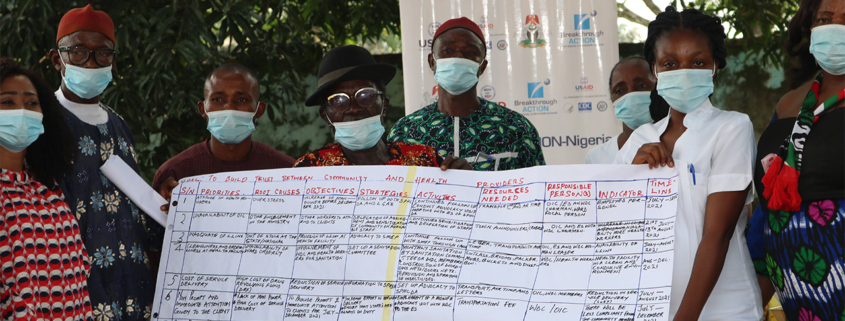 Breakthrough ACTION-Nigeria
Breakthrough ACTION-Nigeria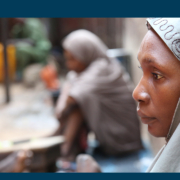
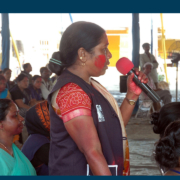 Gopal Bhattacharjee/Photoshare
Gopal Bhattacharjee/Photoshare WHO
WHO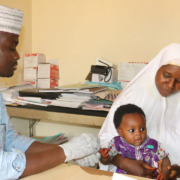 Breakthrough ACTION
Breakthrough ACTION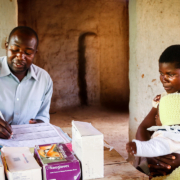 Photo credit: amy Rakotoniaina/PMI/Flickr
Photo credit: amy Rakotoniaina/PMI/Flickr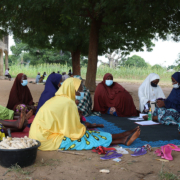 Breakthrough ACTION-Nigeria
Breakthrough ACTION-Nigeria